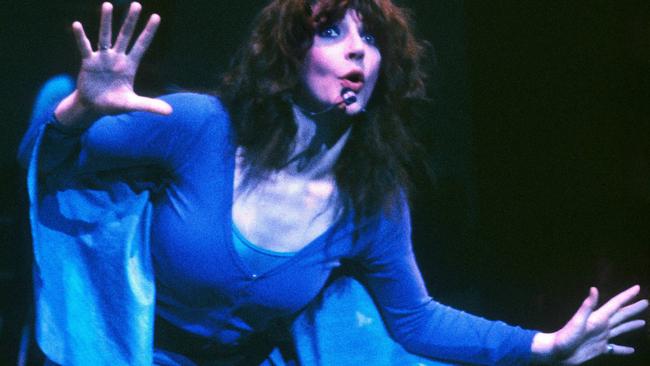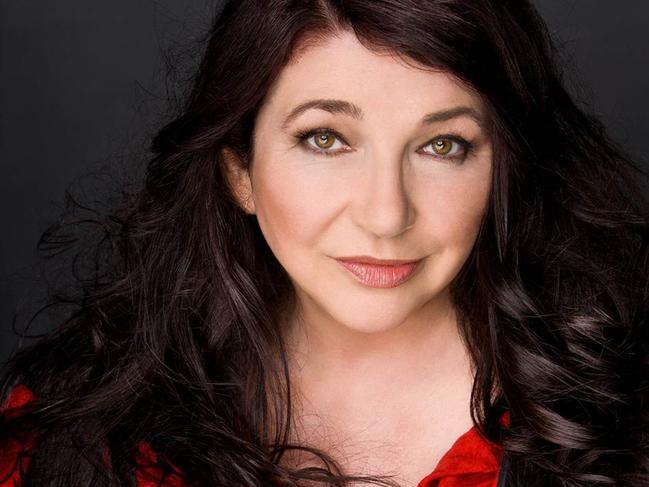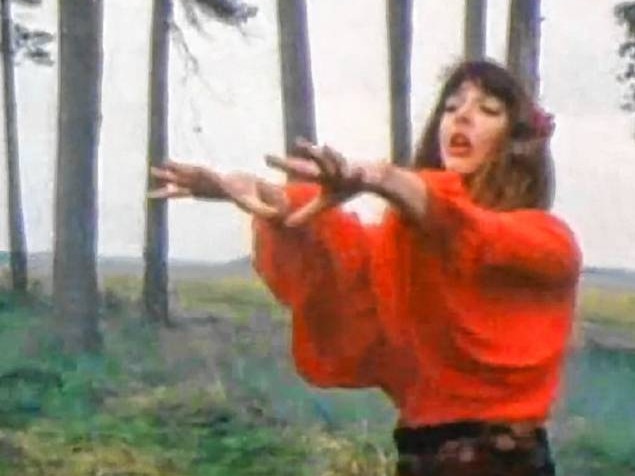Kate Bush has gone from 1980s pop star to legend – so why is that?
Kate Bush has been back on top of the music charts for the first time in 44 years. But that doesn’t explain why the singer has achieved such elite status.

Running Up That Hill, to be clear, is a terrific song – many of us must agree. It has been in the ARIA charts 15 weeks and last week was No.1.
And I think the song This Woman’s Work is totally beautiful. I spread my arms to the sky like everyone else when Wuthering Heights comes on at a wedding disco, just before realising, like everybody else, that it’s impossible to dance to.
But for me, when it comes to Kate Bush, the hounds of true love have never quite managed to sink their teeth in. Bit too noodly; bit too weird; could do with a few more bangers.
Which was, I used to think, fine. There’s a lot of music in the world, and I’m sure Kate can handle it. But now I feel guilty and slightly silly. Is there something wrong with me?
She’s a living legend, we’re told. An icon of popular culture who rewrote the rules for women in music. For women, full stop.
I know you’re not a woman, Martin, but what do you mean you’re not obsessed with Kate Bush!? How exactly did Kate jump from “woman who did some decent pop tunes in the 1980s” to living goddess it’s a crime not to be into?
As you’ll no doubt be aware, because everyone loves Kate Bush, she has just had her first No.1 since 1978 because Running Up That Hill was so cleverly used in the 1980s-set Netflix series Stranger Things.
She issued a statement that she was quite pleased with this late-career turn of events, but then news broke last week that she was going to give an interview. The actual Kate Bush was giving an actual interview! The reclusive, mysterious, mystical 63-year-old doctor’s daughter from Kent was going to walk among us. Her few minutes on the BBC were billed as if Lord Lucan were finally breaking cover.

Talking to an audibly overcome interviewer, she did seem lovely. Indeed she used the word “lovely” quite a lot. But, other than that, the revelations were few and far between.
Kate Bush, we at least now know, has a very old mobile phone. She still has a landline (just like in Stranger Things!). She enjoys gardening. They would have got pretty much the same results if they had interviewed my mum. Either side of the interview, celeb fans gushed, explaining why we really shouldn’t snigger at a song whose chorus is just the words “washing machine” repeated over and over (from her 2005 song Mrs Bartolozzi).
For those still to be converted – and maybe my epiphany has just yet to strike – it was all rather baffling. Take Babooshka for example. For most of my childhood I’m pretty sure I assumed it was performed by the people who sang Ra Ra Rusputin, a sort of novelty act who did songs about the love lives of the Russian peasantry. Let’s be honest, the Boney M song is better, just as mad but with a disco beat – but you don’t see them getting a midmorning on radio.
An elite group of artists attain such a level of painful credibility that, after a certain point, they can do whatever bonkers stuff they want and it will be met with if not fawning admiration then indulgent tolerance. Scott Walker from the Walker Brothers comes to mind, the 1960s crooner and pin-up who, for a 2006 album, recorded someone punching slabs of meat and more or less got away with it.

Kate Bush sticks some Irish fiddles on a song and calls it Jig of Life and she’s mining world culture and taking it in fascinating new directions; Ed Sheeran, who, like Kate Bush, is half Irish, writes a hit called Galway Girl and he’s a cynical cultural appropriator. Kate Bush records eight minutes of fantasy-themed warbling and it’s high art; some hairy men in the 1970s do the same thing and it’s called prog rock.
Kate Bush barks like a dog on Hounds of Love and gets the critical nod of approval; Paul McCartney sings with some frogs and people threaten to burn their copies of the White Album. Kate Bush wears a leotard and it’s a fashion moment.
Last week the big-deal Harvard psychologist Cass Sunstein explained the idea of the “network effect”: essentially, if something starts to become popular, it’s likely to become even more popular. If a few cool kids in the playground – or on social media – start saying they love a certain singer or band, then other people will try that little bit harder to love that certain singer or band. And don’t think I haven’t tried: I’ve listened to the Kate Bush album on which the now disgraced Rolf Harris prominently appears – 2005’s Aerial (but you knew that) – at least twice all the way through. Call it pop-music peer pressure.
I’ve been thinking of some alternative questions I would have asked Kate if I had had that radio gig. Did all those leotards make it tricky to go for a wee in 1978? What exactly was the deal with Rolf Harris? And, when she’s doing her beloved gardening, does she have a favourite bush that she calls Kate’s bush?
The Sunday Times


